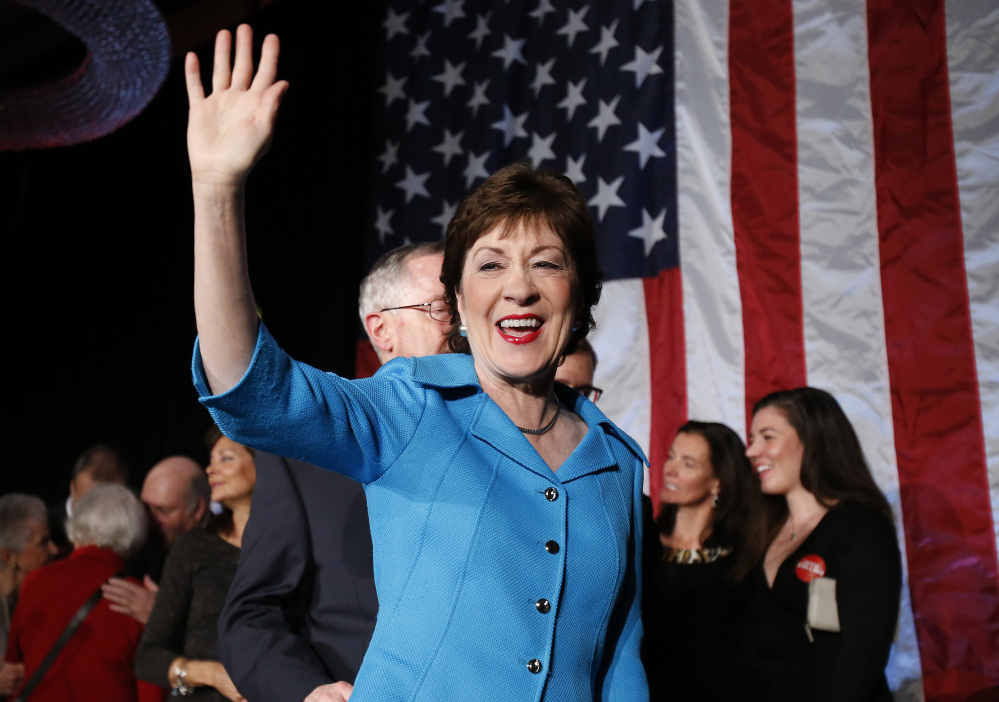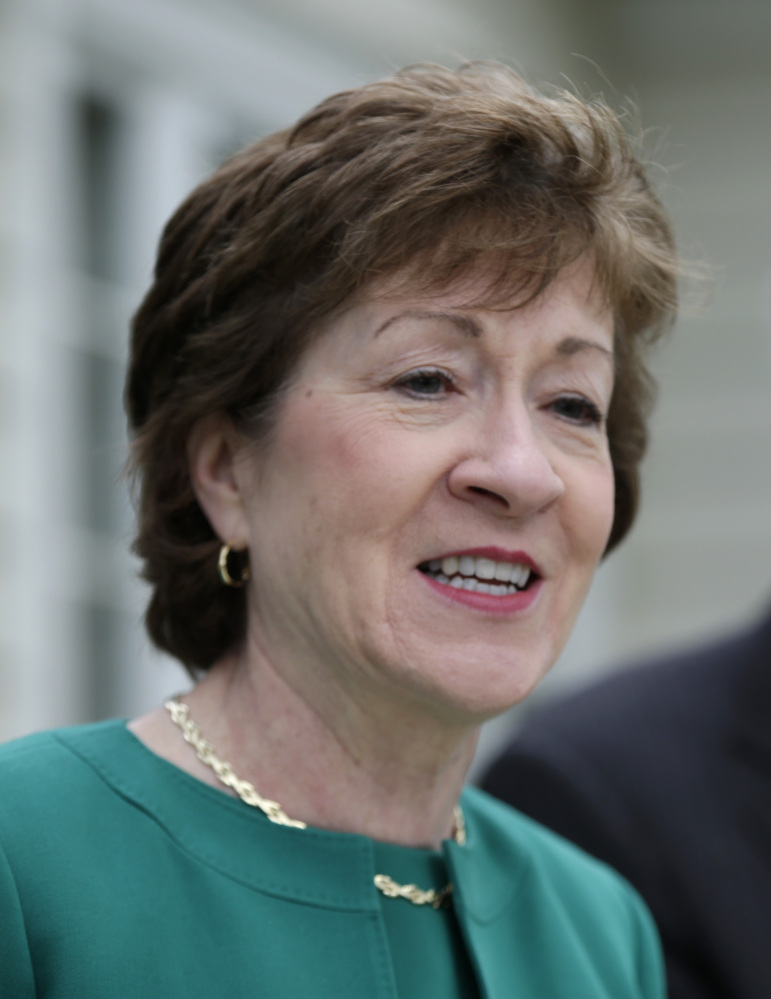WASHINGTON — Soft-spoken Republican Sen. Susan Collins is quite popular these days, fielding calls from President Obama, members of the GOP leadership and top Democrats Harry Reid and Chuck Schumer.
The outreach was more than just congratulations for winning a fourth term. Both parties have an incentive for courting Collins.
Come January, the centrist from Maine will be a crucial member of a group of moderates wielding considerable clout in the Republican-led Senate, along with independent Angus King, also of Maine, and a handful of Democrats from Republican states. Depending on the issue, the moderate ranks could increase slightly as Republicans from Democratic states move to the middle ahead of 2016 re-election bids.
The GOP likely will hold 54 seats next year, a solid majority but six short of the 60 necessary to break Democratic filibusters and delaying tactics. Incoming Majority Leader Mitch McConnell, R-Ky., would need the support of Maine’s King and Democrats such as North Dakota’s Heidi Heitkamp, Joe Manchin of West Virginia, Joe Donnelly of Indiana and Montana’s Jon Tester to move legislation over any Democratic objections.
POTENTIAL DEALS TO BE DONE
“I hope that those of us who are committed to actually getting legislation passed can work together and bridge some of the partisan divide,” Collins said in an interview.
McConnell has promised to get bills passed and change how the Senate operates, returning to past practices in which Republicans and Democrats offer amendments to legislation and get a vote. Current Senate Majority Leader Harry Reid, D-Nev., has limited amendment votes, in part over frustration with Republican obstruction.
Collins listed potential measures that could get done, from tax overhaul to transportation, from jobs bills to legislation that she and Donnelly are sponsoring to define full time in the 2010 health care law to 40 hours per week instead of 30. The lawmakers have complained that the law has created uncertainty for employers, some of whom have cut hours to avoid complying with requirements to provide health care coverage.
King has joined forces with Sen. Richard Burr, R-N.C., on legislation to overhaul student loan repayment programs, partnered with Republican Sen. Deb Fischer of Nebraska on a bill offering tax credits to employers who offer paid family leave and introduced a measure with Sen. Roy Blunt, R-Mo., to create a commission to review outdated regulations.
KING WATCHES THE REPUBLICANS
King, who will continue to caucus with Democrats, said he has been in touch with Republicans since the election. He will be watching closely to see whether the Republicans are serious about acting to pass legislation.
“When I went home to Maine last year, I said after I was here about six months, one of the most amazing things I find about this place is everybody thinks they’re in charge and nobody is,” King said in an interview. “Just as the Democrats needed six or eight Republican votes in order to move anything through the Senate to get to 60, that same rule will now apply to the Republicans.”
Despite the significant numbers of liberals and conservatives in the Senate, several Republicans will be forced to move to the center politically as they face a Democratic-leaning electorate in their home state in a higher turnout, presidential election year. Collins, King and the other moderates may get help from Mark Kirk of Illinois, Rob Portman of Ohio, Pat Toomey of Pennsylvania, New Hampshire’s Kelly Ayotte and Wisconsin’s Ron Johnson.
Send questions/comments to the editors.




Success. Please wait for the page to reload. If the page does not reload within 5 seconds, please refresh the page.
Enter your email and password to access comments.
Hi, to comment on stories you must . This profile is in addition to your subscription and website login.
Already have a commenting profile? .
Invalid username/password.
Please check your email to confirm and complete your registration.
Only subscribers are eligible to post comments. Please subscribe or login first for digital access. Here’s why.
Use the form below to reset your password. When you've submitted your account email, we will send an email with a reset code.